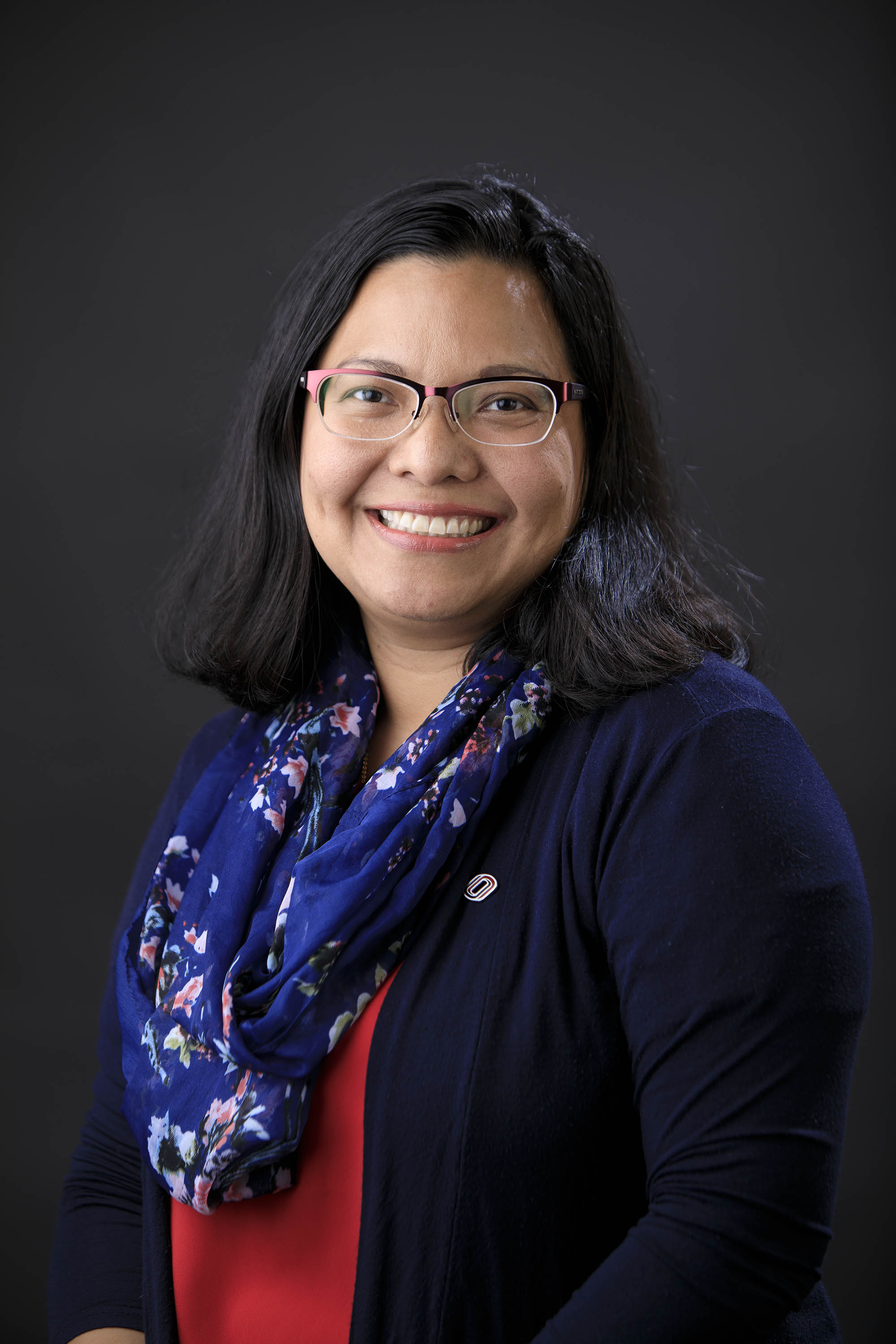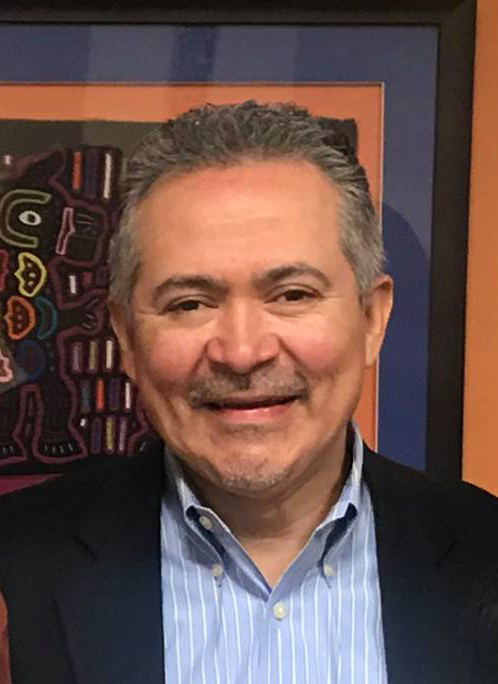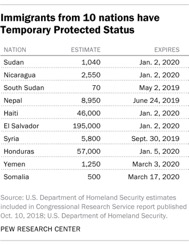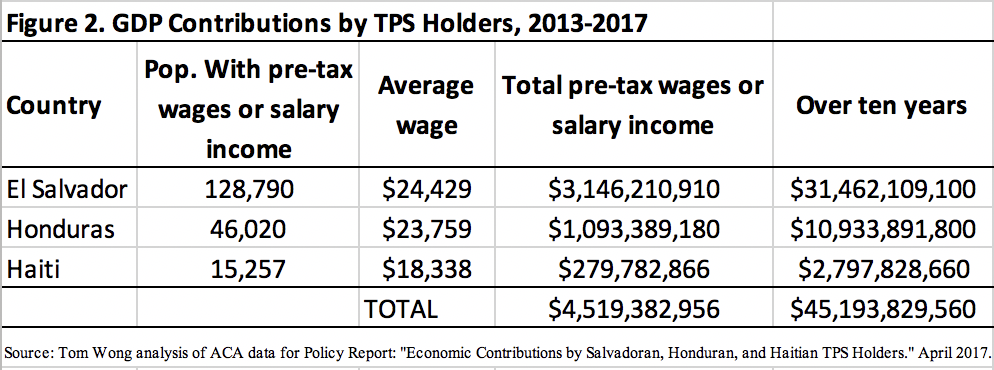March 2019
Yuriko Doku
OLLAS Assistant Director
Oscar A. Chacón
Alianza Americas Co-Founder & Executive Director


TPS Extension: A New Hope for Salvadorans
In 1990, a group of nationals from El Salvador became the first beneficiary of the newly enacted Temporary Protected Status (TPS). The U.S. Congress managed to reach a compromise on the case of Salvadoran nationals who had fled the country’s civil war, and who had not been able to secure asylum protection in the U.S. by the time this legislative change came about. This program grants the executive branch the right to designate, under certain criteria, immigration protection for nationals of a given country. In 2001, a new group of nationals from El Salvador was again granted TPS. In this instance, the triggering factor for granting this protection were two devastating earthquakes. While protected by TPS, beneficiaries are allowed to stay and live in the U.S. In the case of adults, they are granted work permits. According to the 2017 American Community Survey (ACS), the total estimate number of Salvadoran immigrants who reside in the United States are 1.4 million people. An estimate of 195,000 Salvadorans are TPS beneficiaries. El Salvador TPS designation has been regularly extended by prior administrations. In spite of Trump administration’s decision to terminate the current extension on September 9, 2019, a new hope has risen among Salvadorans. The case of Ramos v. Nielsen to avoid ending TPS not only for El Salvador but also for Nicaragua, Sudan, and Haiti continues pending. As a temporary solution, on March 1, 2019, the Department of Homeland Security (DHS) announced an automatic extension of TPS for these countries until January 2, 2020.
Overview
As mentioned before, TPS was established by the U.S. Congress as part of the Immigration and Nationality Act passed on Sep. 19, 1990. This temporary immigration status has been beneficial to those nationals of countries that have suffered unexpected circumstances such as environmental disaster, armed conflict, or other difficult conditions that would not allow them to safely return to their native countries (Bergeron, 2014). To be eligible for TPS, an individual of a TPS designated country, must be residing in the U.S. at the time of designation, submit an application, demonstrate his or her nationality and date of entry to the U.S., and provide evidence of no conviction of a felony or two or more misdemeanors. It is important to note, that TPS does not provide a path to lawful permanent resident status, citizenship, or any other permanent immigration status.
The DHS Secretary, currently Kirstjen Nielsen, has the authority to designate a country for TPS for 6 to 18 months, can renew these periods if a country continues to meet the conditions for designation, and end the TPS designations (Bergeron, 2014). Approximately, 318,000 migrants live and work in the United States under TPS (See Figure 1). The vast majority come from El Salvador, Haiti, and Honduras.
Figure 1. Number of TPS Beneficiaries by Nationality

Salvadorans Socio-Economic Contributions
According to a study conducted by the New American Economy (2017), Latin American immigrants in the U.S. have constituted an integral part of the U.S. economy. Salvadoran immigrants are not the exception. With an estimate of 195,000 Salvadoran immigrants with TPS status, this population has positively contributed to the U.S. society as a whole (Menjívar, 2017). The majority of Salvadoran TPS beneficiaries reside in California (25.18%), Texas (18.62%), and Virginia (11.03%) (Warren & Kerwin, 2017). In the case of Nebraska, based on the American Community Survey (ACS) 2013-2017 5 year estimates, there are approximately 4,900 Salvadorian immigrants who are living in the state. An estimate number of 3,000 are TPS beneficiaries.
For Salvadoran TPS holders, the majority of jobs are in industries such as construction, restaurant and other food services, landscaping services, and childcare services, among others (Warren & Kerwin, 2017). Therefore, if the DHS Secretary decides to terminate TPS for a designated country, those TPS beneficiaries would lose their work permits, not being able work lawfully in the country. In this context, these individuals would either quit their jobs for fear or be fired from their employer. We can explain the impact of a potential ending of TPS by analyzing the effect of lost wages on the US GDP (Gross Domestic Product) (Baran et al., 2017).
According to the ACS 2013-2017 5 year estimates, 128,790 Salvadorans earned pre-tax wages or salary income in that period (See Figure 2). This data shows that the contribution of TPS beneficiaries from El Salvador, Honduras and Haiti together constitutes $ 4.5 billion in pre-tax wages or salary income annually and $ 45.2 billion over the next 10 years. Among these countries, Salvadoran TPS holders contribute with more than two-thirds of the total pre-tax wages or salary income.
Figure 2. GDP Contributions by TPS Holders, 2013-2017

Additionally, Salvadoran TPS holders’ remittances play a critical role by providing financial support to assist recovery and stability in their home country (Svajlenka et al., 2017). For instance, in 2016, remittances to El Salvador from the U.S. exceeded $4.576 billion, approximately 17.1 percent of El Salvador’s GDP according to the World Bank. Eliminating this assistance, coupled with the possible return of thousands of Salvadorans to their country of origin, would be catastrophic for that country’s economy.
After analyzing the positive socio-economic contributions that Salvadoran TPS holders bring to the U.S. and to El Salvador, we hope the current administration re-considers its decision to end TPS. At a very minimum, the Trump Administration and the U.S. Congress should agree to keep TPS beneficiaries protected until the U.S. Congress provides a legislative solution to allow TPS beneficiaries to apply for Legal Permanent Residency visas. Given their many years of residence in the US and the many economic and social equities earned over those years, an adjustment of status program would be the most appropriate solution for these populations. In addition, El Salvador is today a country that fails to offer public safety and economic conditions to many of its citizens. Deporting people to that country is far from an adequate humanitarian response to the current crisis there. It is important to keep all TPS beneficiaries protected, with their work permits valid for enough time to allow the US Congress to provide a long lasting legislative solution to their situation.